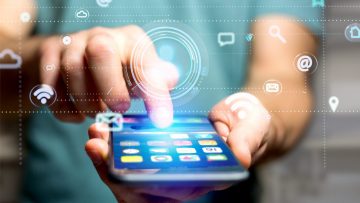Most of us order our coffee with half and half, or a pastry on the side. But what Buenos Aires Starbucks goers didn’t realize is that they were ordering their cup of joe with a side of Bitcoin mining. Just this this week, a coffee lover and Stensul’s CEO Noah Dinkin noticed that while logging into Wi-Fi provided by one of the coffee chain’s Buenos Aires outlets, his device was being used to mine for cryptocurrency.
First off – what exactly is Bitcoin mining? As defined by Investopedia, Bitcoin mining is the process by which transactions are verified and added to the public ledger, known as the block chain, and also the means through which new bitcoin are released. Anyone with access to the internet and suitable hardware can participate in mining.
So, you can only imagine Dinkin’s surprise when he discovered the café’s Wi-Fi doing exactly that. “Hi Starbucks, did you know that your in-store Wi-Fi provider in Buenos Aires forces a 10 second delay when you first connect to the Wi-Fi so it can mine Bitcoin using a customer’s laptop?” he asked on Twitter. Although Dinkin initially believed the code was forcing his laptop to try to mine for Bitcoins, other Twitter users noted that it had in fact been designed to mine another digital currency – Monero.
It seems this was a surprise to Starbucks too, which later made it publically aware that their Wi-Fi provider was hit with malware. “As soon as we were alerted of the situation in this specific store last week, we took swift action to ensure our internet provider resolved the issue and made the changes needed in order to ensure our customers could use Wi-Fi in our store safely,” the official Starbucks account tweeted to Dinkin.
This entire incident was a bit surprising, as victims’ computers are normally targeted for Bitcoin mining via infected websites. Regardless, this issue does highlight one thing: the risk of using public Wi-Fi.
Tips to Protect Yourself From Bitcoin Mining Attack
Therefore, to protect yourself from this Bitcoin mining attack and others that leverage public Wi-Fi, be sure to follow these tips:
- Be selective with what Wi-Fi you access and what you share with it. The convenience of public Wi-Fi doesn’t always outweigh its drawbacks. Only connect to a public Wi-Fi network if you absolutely need to. And when you do, be sure to be careful with what data you share while accessing that network.
- Consider a VPN. A Virtual Private Network (VPN) extends a private network across a public network, and can help to secure and encrypt your data on public Wi-Fi networks. Therefore, find yourself a solid VPN, such as such as McAfee Safe Connect, to implement on your device.
And, of course, stay on top of the latest consumer and mobile security threats by following me and @McAfee_Home on Twitter, and ‘Like’ us on Facebook.














